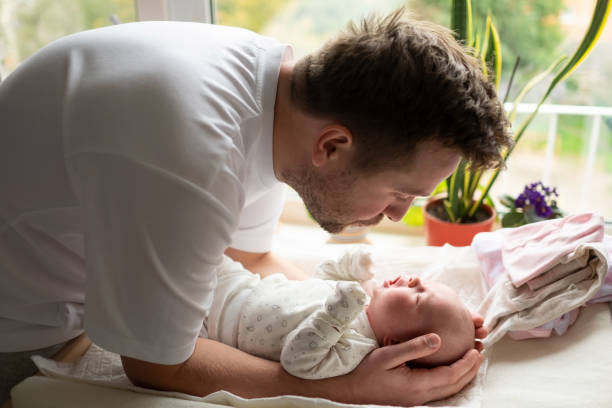There is a voice inside you. You may not always hear it clearly, but it’s there—whispering judgments, offering comfort, issuing warnings, casting doubt. It tells you who you are, what you deserve, how much you matter.
That voice is your self-esteem.
It is not loud or dramatic. It doesn’t need to be. Because it doesn’t shout—it steers. It determines whether you apply for the job, end the relationship, forgive yourself, pursue the dream, take the risk, or stay exactly where you are, frozen in fear.
Self-esteem is not arrogance. It’s not about thinking you’re better than others. It’s about feeling that you are enough. That you are worthy—not because of what you’ve done, but simply because you exist.
And yet, so many of us feel we’re not enough.
So how does this happen? How do we build—or more often, destroy—our sense of worth? And more importantly: can we rebuild it?
The answer, as it turns out, lies in our childhoods, our cultures, our relationships—and most of all, in our ability to understand ourselves with kindness.
Let’s begin at the beginning.
The Seeds Are Planted Early
No one is born hating themselves. No baby ever thinks, “I’m not good enough.” Self-esteem isn’t innate. It’s learned.
In the early years of life, we look to our caregivers not just for food and shelter, but for mirroring. We learn who we are by how others reflect us back to ourselves. When a child cries and is soothed, she learns she is worthy of comfort. When he smiles and is met with delight, he learns that joy is welcome. When a toddler is allowed to explore, stumble, and try again, they learn they are capable.
But what happens when those needs aren’t met? When a parent is critical, distracted, absent, or abusive?
The child does not stop loving the parent. The child stops loving themselves.
Why? Because it’s safer.
Blaming ourselves gives us the illusion of control. “If I’m the problem,” the child unconsciously believes, “maybe I can fix it. Maybe I can be good enough to be loved.” So we shape-shift. We become perfectionists, people-pleasers, comedians, caretakers, achievers. Anything to stay connected. Anything to feel safe.
And thus, the fragile foundations of self-esteem are laid.
The Many Faces of Low Self-Esteem
Low self-esteem doesn’t always look like sadness. Sometimes it wears a mask.
It can look like overachievement—needing constant validation, hustling for worth. It can look like procrastination—so afraid of failure that we never start. It can look like chronic apologizing, trouble setting boundaries, or tolerating abuse because we think it’s all we deserve.
It can also look like arrogance. Yes, arrogance. Because when we feel worthless inside, we sometimes overcompensate with bravado. We put on armor, pretend we don’t care, inflate our egos to avoid collapsing.
But deep down, there is a hollow ache. A fear of being found out. A belief that if people really knew us, they would turn away.
This is the quiet tragedy of low self-esteem. It hides in plain sight. And it robs us of so much joy.
The Culture of Not Enough
We don’t just learn self-esteem from our families. We absorb it from our culture, too.
We live in a world that profits from our insecurity. Every advertisement whispers, “You’re not enough—but you could be, if you buy this.” Every glossy image, every influencer’s perfect post, every diet ad and self-help promise—these are not just messages. They are indoctrinations.
We are taught to measure our worth by impossible standards: flawless beauty, endless productivity, constant happiness. We are told to be thin, but not hungry. Confident, but not too loud. Ambitious, but not threatening. Masculine, but not vulnerable. Feminine, but not needy. Smart, but not intimidating.
No wonder we’re confused.
The culture doesn’t want us to have self-esteem. It wants us to have self-doubt—because self-doubt keeps us consuming.
And so, even when we build self-esteem, the world tries to chip away at it. Slowly. Subtly. Repeatedly.
The Role of Relationships
If childhood was the first mirror, then relationships are the second.
Every relationship we enter continues the story of our worth. Healthy relationships can reflect us kindly, help us heal, and remind us that we are lovable just as we are. But unhealthy relationships—especially romantic ones—can echo old wounds.
Have you ever found yourself chasing someone who treats you poorly? Staying in a friendship where you feel invisible? Believing you don’t deserve better?
That’s not weakness. That’s a self-esteem injury calling for attention.
Often, we recreate our childhood dynamics in adult relationships—not because we enjoy the pain, but because it feels familiar. And familiar feels safe, even when it’s toxic.
But there is good news: relationships can also repair self-esteem. A loving partner. A compassionate friend. A wise therapist. These people become new mirrors. They help us see ourselves differently. They show us what it means to be loved without earning it.
Slowly, painfully, beautifully—we begin to believe them.
Self-Esteem vs. Self-Compassion
There’s a hidden danger in the way we talk about self-esteem: it’s often tied to achievement. You feel good about yourself because you did something impressive. You won the award. You got the raise. You lost the weight.
But what happens when you fail?
If your self-esteem is based on success, it crumbles the moment you stumble. And stumble you will—because you’re human.
That’s why some psychologists now argue that self-compassion is more important than self-esteem.
Self-compassion says: “Even when I mess up, I am still worthy.” It allows us to fail without shame. To be flawed and still lovable. To be in pain without losing value.
It’s not a get-out-of-jail-free card. It doesn’t excuse harm. But it includes your humanity in your worth.
And that’s revolutionary.
The Inner Critic: How We Destroy Ourselves
Everyone has an inner voice. But for many of us, that voice is a tyrant.
It criticizes our every move. It repeats old insults. It calls us lazy, ugly, stupid, selfish. It tells us we’ll never be good enough. And we believe it—not because it’s true, but because it’s familiar.
That voice is often internalized from the outside. A cruel parent. A harsh teacher. A toxic ex. They don’t live with us anymore, but their voice does.
We destroy self-esteem by letting that critic run the show.
But here’s the secret: you are not your inner critic. You are the one hearing it. And once you recognize that, you can start changing the conversation.
You don’t have to fight it. You can talk back to it. Ask where it came from. Ask what it’s afraid of. Thank it for trying to protect you—then set a new boundary.
You can replace cruelty with curiosity. Blame with understanding. Harshness with tenderness.
Because the voice you speak to yourself with becomes the voice your soul believes.
Building Self-Esteem: Not a Destination, But a Practice
You don’t wake up one day and have perfect self-esteem. It’s not a destination. It’s a practice. A relationship. A garden you tend every day.
So how do you build it?
You start by telling the truth. To yourself. About what hurts. About what you need. About the places inside you that still feel broken.
Then, you meet those places with kindness.
You set boundaries—not to keep people out, but to keep your dignity in.
You celebrate small wins. Not for the world, but for you.
You spend time with people who see your light when you’ve forgotten it.
You do things that remind you of your strength—whether that’s lifting weights or learning a new language or finally speaking up for yourself.
And when you fall apart—as you will—you hold yourself like a child who needs comfort, not correction.
Self-esteem is not about never doubting yourself. It’s about learning to return to yourself after the doubt.
Letting Go of the Old Story
We all carry stories about who we are. Some were written for us. Others we wrote ourselves in moments of pain.
“I’m not good enough.”
“I’m too much.”
“I’m unlovable.”
“I don’t matter.”
These stories feel permanent. But they are not facts. They are interpretations.
And interpretations can change.
You can write a new story. Slowly. One page at a time. One act of self-trust at a time.
You don’t have to erase the past. You just have to stop letting it define you.
You are not the broken thing that happened to you. You are the person who survived it.
The Gift of Believing in Yourself
When you build true self-esteem—not based on perfection, but on compassion—you begin to move through the world differently.
You take risks, not because you’re sure of success, but because you no longer fear failure.
You love others more deeply, because you’re no longer begging them to love you back in order to feel whole.
You speak up, not to prove your worth, but to honor it.
You become less reactive, less defensive, less afraid—because you know who you are.
And that changes everything.
What You Deserve to Know
If you’ve made it this far, there’s something you need to hear.
You are not broken.
You have been hurt. You have been shaped. You have been taught things about yourself that were never true.
But underneath all of that—beneath the pain, the armor, the stories—there is still you.
And you are enough.
Not because you’re perfect.
But because you are human.
And that is enough.
Always.






